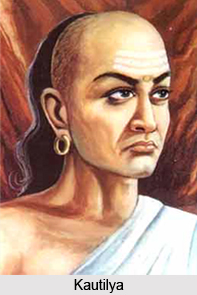 Theory of Reason in Indian Philosophy has also been illustrated in Indian Epics like Mahabharata. An episode in the epic speaks of the theory. Bhishma tells Yudhisthira that there is nothing more worth having than wisdom. One can take refuge of all living things as it is the ultimate attainment. However if the illustration is not understood then the story of Indra and the jackal can also be sighted.
Theory of Reason in Indian Philosophy has also been illustrated in Indian Epics like Mahabharata. An episode in the epic speaks of the theory. Bhishma tells Yudhisthira that there is nothing more worth having than wisdom. One can take refuge of all living things as it is the ultimate attainment. However if the illustration is not understood then the story of Indra and the jackal can also be sighted.
Indra criticizes himself on important terms as they are associated with the practice of philosophy in India. The reasoner was Indra who was addicted to study of critical inquiry and argument. Free thinking was seen as a threat to the stability of orthodox Brahmanical learning. In Ramayana, Lord Rama advises his brother Bharat to be away from such people. He advises him not to associate with lokayata Brahmins as they bring misfortune. Such people derive their ideas from critical inquiry.
Reasoners pose as a challenge to the existing tradition. Code of Manu advises that a Brahmin, who uses the science of reasoning, treats with contempt twin authorities on proper conduct should be driven from the group of the virtuous people. However one cannot ascertain that theory of reason has been condemned. Its fickle use is what has not been accepted. The reasoners have no goal other than the use of reason itself. Everything is sceptical for them. Reason is used by them to criticise the scriptures. Reason is misused when it is used in a destructive manner. Reason should be used to support one`s beliefs, goals and values. The objection to the reasoners is that it has become an end in itself. It is unpredictable.
The idea that reason must be purposeful is mentioned in Arthashastra that has been authored by chief minister of court of Chandragupta. He states that Anvikshiki is one of the four branches of learning in which a young patrician should be trained. It main categories are: samkhya, yoga and lokayata. However he rejects the claim of Manu that the study of critical reasoning has to abide by a religious study of the self and its liberation. Critical inquiry is an independent authority. However the study of critical inquiry confers that people would be benefited keeping their minds stable in difficulty and in success. It produces skill of understanding, speech and action.
A rational investigation inquires into the nature of the distinction between good and evil. The domain of application for critical inquiry is much wider as it covers any situation in which one sets about achieving one`s aims in a rational manner.
Every thing can be done in a reasoned manner. Therefore Anviksiki according to Kautilya reasoning is a study of the generic concept of rationality. Kautilya`s conception is goal-oriented.



















